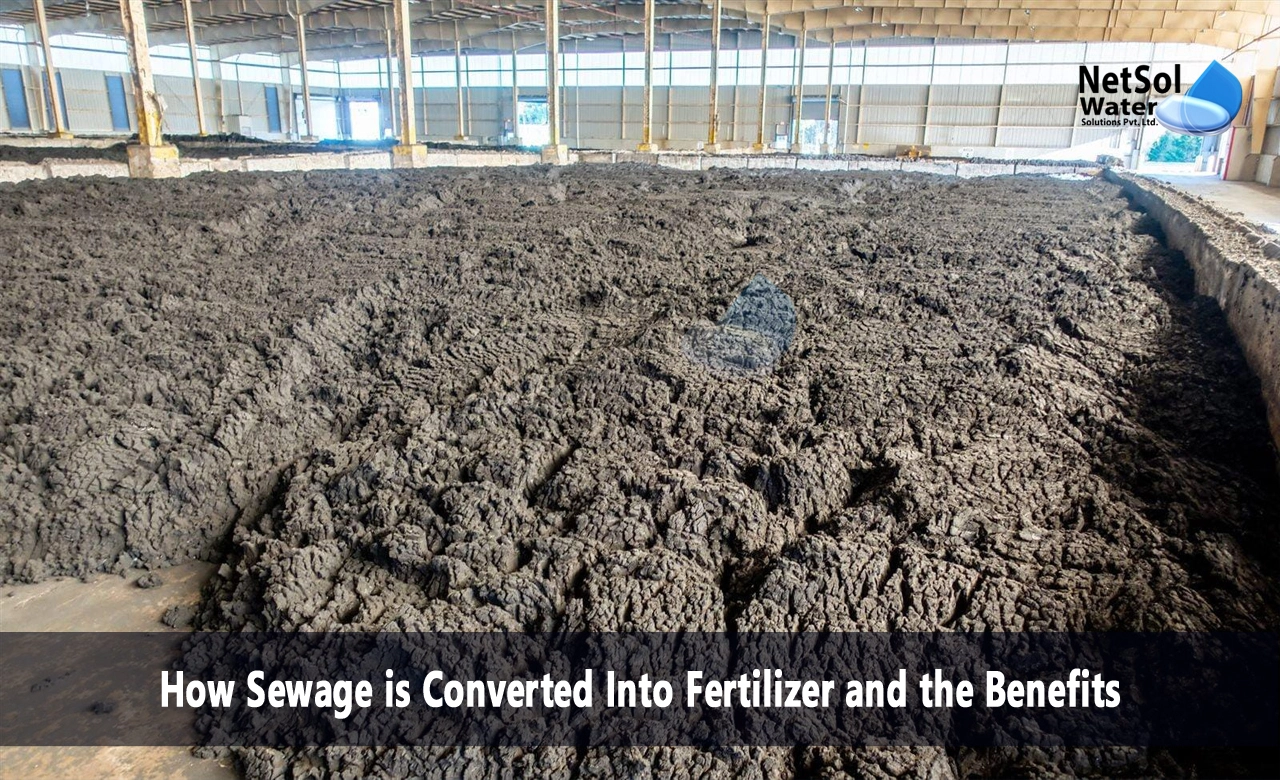How Sewage is Converted Into Fertilizer and the Benefits?
As the world's population continues to grow, finding sustainable ways to manage waste and produce food is becoming increasingly important. One solution that is gaining traction is turning sewage sludge (the residual, semi-solid material left from municipal wastewater treatment) into fertilizer. This process, known as biosolids recycling, can transform waste into a useful product that replenishes nutrients in soil. Biosolids recycling is a cost-effective and environmentally-friendly way to dispose of sewage sludge while benefiting agriculture. We will provide an overview of how sewage is converted into fertilizer and the benefits and considerations of using biosolids as fertilizer.
How Sewage is Processed into Fertilizer?
Sewage goes through various treatment processes at wastewater treatment plants to clean and remove contaminants from household and industrial waste. The initial treatment steps involve removing large debris and using gravity to settle out heavier solids. The water then goes through aeration tanks where bacteria digest organic matter. After secondary clarification to remove more solids, the water may be treated with chlorine, filters, and other disinfecting processes before being discharged into waterways.
The solids separated from the wastewater stream are the sewage sludge that can be processed into fertilizer. The sludge is first thickened to increase its solids content. It then goes through a digestion process, either anaerobic digestion with microorganisms in an oxygen-free environment or chemical digestion using lime or other treatments. Digestion reduces pathogens and odor in the sludge. The digested sludge is dewatered to further increase solids content. Conditioning agents like lime, fertilizers, and polymers may be mixed in to reduce odor, improve fertilizer properties, and reduce the potential for metals to leach into the soil. The dewatered sludge is then dried through processes like lagoons, filter belts, filter presses, and thermal dryers until only about 10% moisture remains. The end product is a dry, granular, soil-like material.
Before distribution to farmers and agricultural lands, the processed sewage sludge is carefully tested to ensure safety, proper sanitization, and nutrient content. Some facilities will apply an additional heat treatment called pyrolysis to further reduce pathogens, concentrate nutrients, and improve odor and texture. The final biosolids product, now high in organic matter and essential nutrients like nitrogen and phosphorus, can be bagged and spread on fields as fertilizer.
Benefits of Biosolids Fertilizer
Using processed sewage sludge as fertilizer has many potential benefits:
1- Provides a free and abundant source of fertilizer. Millions of tons of biosolids are produced each year in the US alone, providing farmers with a local and cost-effective fertilizer source.
2- Recycles waste into a usable product. Rather than taking up space in landfills, biosolids are transformed into a resource.
3- Reduces reliance on chemical fertilizers. Biosolids can replace a portion of inorganic fertilizers, some of which are made from nonrenewable resources.
4- Improves soil structure and fertility. Biosolids increase organic matter and nutrient content in soil. This can improve moisture retention, aeration, and microbial activity in the soil to support plant growth.
5- May contain micronutrients. Biosolids contain trace amounts of micronutrients like copper, zinc, and manganese that are beneficial to plant growth.
6- Reduces carbon footprint. Utilizing biosolids as fertilizer reduces greenhouse gases associated with chemical fertilizer production and waste disposal.
However, there are also important considerations about biosolids use:
1- Potential contaminants: Biosolids maycontain trace amounts of household chemicals, pharmaceuticals, and heavy metals that couldimpactsoils. Proper treatment and testinghelps reduce this risk.
2- Odors: Some biosolids may have detectable odors, even after processing. Odor control measures help mitigate nuisance odors where biosolids are applied.
3- Handling considerations: Since biosolids are derived from wastewater, there are sanitation considerations and guidelines for application methods, crop restrictions, and timing until crop harvest.
4- Public perceptions: There may be public concerns about using what was once human waste on agricultural fields. Community outreach helps raise awareness about treatment processes and safety testing.
Conclusion
Recycling nutrients and organic matter from wastewater treatment plants into biosolids fertilizer is an increasingly used practice that aims to create environmental and economic benefits. With proper treatment and testing, sewage sludge that was once waste can be transformed into a valuable agricultural product. Biosolids offer a locally-available, cost-effective fertilizer source that can enhance soil health and reduce reliance on chemical fertilizers. However, there are still important considerations for their safe use, including monitoring for potential contaminants, controlling odors, and following application guidelines. Public education can help ease concerns about bio-solids use in agricultural fields. With careful management and oversight, the use of processed sewage sludge as fertilizer can be an environmentally sustainable practice that tackles two needs - waste disposal and food production. More research and optimization of treatment processes can continue improving the safety and quality of biosolids recycling.
Netsol Water is Greater Noida-based leading water & wastewater treatment plant manufacturer. We are industry's most demanding company based on client review and work quality. We are known as best commercial RO plant manufacturers, industrial RO plant manufacturer, sewage treatment plant manufacturer, Water Softener Plant Manufacturers and effluent treatment plant manufacturers. Apart from this 24x7 customer support is our USP. Call on +91-9650608473, or write us at enquiry@netsolwater.com for any support, inquiry or product-purchase related query.



